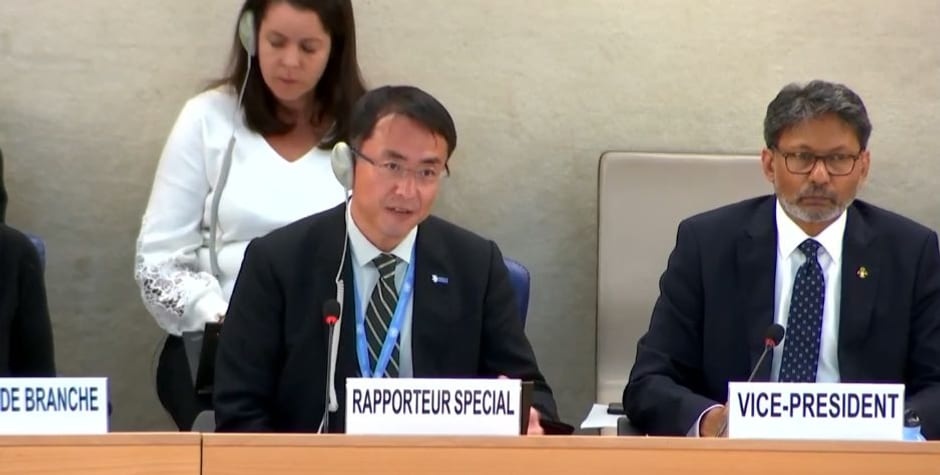

The financial sector, a lever in the fight against the abuses of pornography?
The financial sector, a lever in the fight against the abuses of pornography?
The European Centre for Law and Justice (ECLJ) sent Mr. Tomoya Obokata, UN Special Rapporteur on contemporary forms of slavery, a written contribution on the role of the financial sector in the pornography industry. The ECLJ thus responded to the call for input launched by the Special Rapporteur in the context of his draft report on “the role of financial sector in preventing and addressing contemporary forms of slavery.”
The ECLJ drew the Special Rapporteur’s attention to the need to address in his future report the issue of the role of the financial sector in eliminating the sexual exploitation and trafficking in human beings on which pornography is based. To this end, the contribution begins by stressing that pornography is a “hub” for trafficking, as demonstrated both by the facts and by various international and European documents. On the one hand, pornography is fuelled by trafficking, of which many of the people appearing in this type of content are victims, particularly women and children. On the other hand, since it is nothing other than “filmed prostitution”, pornography feeds trafficking because of its close links with prostitution and pimping: pornography consumers often contact prostitutes to reproduce what they have seen on screen.
Yet the financial sector plays a vital role in the pornographic industry: with its astronomical turnover, this industry necessarily depends on financial institutions such as banks and payment processors that agree to provide it with their services. In 2021, Le Monde described the banking sector as a “de facto regulator of the pornographic industry”. The ECLJ’s contribution offers a few examples to support this observation.
While the ECLJ is committed to the fight against prostitution and pornography, in particular with the aim of protecting children, its contribution recommends using the financial sector as a lever to lead the sex industry to a form of “purification”. Whereas pornographic sites are dependent on the financial sector, the latter seems careful to preserve a certain brand image that could be tarnished if it collaborates with illegal sites. The ECLJ therefore calls on the Special Rapporteur to recommend that States prohibit the financial sector from providing services to providers of illegal pornographic content or with no mechanism to protect minors. A recent Polish bill designed to protect minors is part of this trend, and provides for a ban on payment providers from supplying their services to sites appearing on a register of illegal pornographic domains, modelled on the regulation of online gambling.













